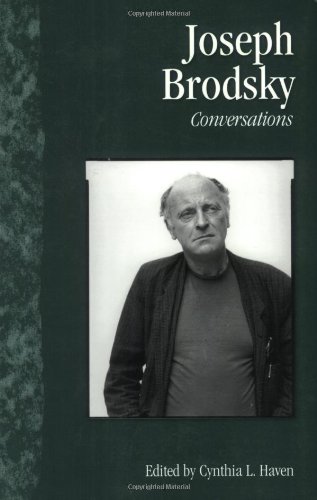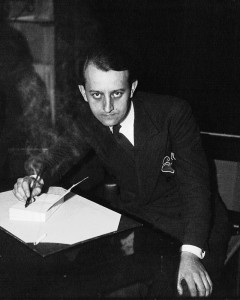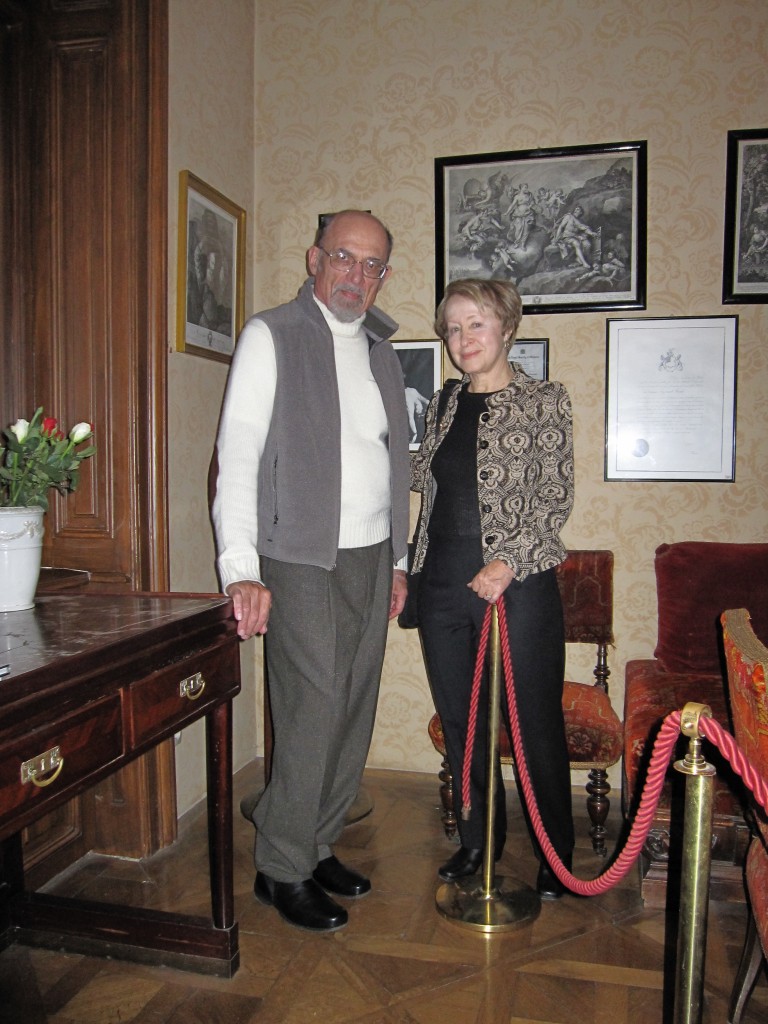
We liked the “merciless honesty” of the Avedon photo, too.
NEWS FLASH! Newly discovered 11-year-old review says great things about Joseph Brodsky: Conversations! Bless you, Theo, whoever you are! Much to our surprise, we just learned that long ago, on September 23, 2003, we got a nice write-up in a blog called Private Intellectual, which still exists today (though Theo seems to have disappeared from it) – this is not something to be taken for granted in the blogosphere, which has much deadwood floating in it. We ran across the review when we were looking for an article on Madame de Staël, of all things.
Theo lamented that the book was not published by Farrar, Straus & Giroux, he wished it had been reviewed by Michiko Kakutani, he decried the lack of public notice (well, we got a little notice, in the Times Literary Supplement, among others…) What can we say? We love him.
Here‘s what he wrote, way back when, a year after the book was published:
The role Edward Teller played in freeing Joseph Brodsky, is told rather briefly in the single most rewarding tome of what the darkening Atlantic skies over Providence, Rhode Island, tell me has already been my summer reading.
In San Francisco two months ago, I picked up Joseph Brodsky. Conversations, at City Lights Bookstore (Ferlinghetti was winding down, in the background, from preaching in the Beatnik mode: a Jeremiad against this country in the name of this country – the classic exemplum being Ginsberg‘s “America I’ve given you all and now I’m nothing. /America two dollars and twenty-seven cents January 17, 1956. (…)/America when will we end the human war?/ Go fuck yourself with your atom bomb /(…) America when will you be angelic?” ).
The book is a compilation of interviews with the poet recorded throughout Brodsky’s short life, collected from wide and far by Cynthia L. Haven. Because many of the pieces are from small literary magazines and many of the questions are outright stupid – no literary publisher – not even JB’s own Roger Strauss (not a publisher, more like my living room, JB said), seems to have wanted to bring them out. Not even the merciless honesty of the cover photo by Richard Avedon caught the eye of Manhattan’s literati. One wonders whether if this book would have been brought out by FSG, it would have been hailed by Michiko Kakutani as “monumental, of the essence, the poet continues to speak from beyond the grave”, etc. but since it comes from the Mississippi State University Press [No – the University Press of Mississippi’s “Literary Conversations” series – ED.] it has been utterly neglected – a decadent snobbery of the worst kind; for I daresay this is a posthumous collection of perhaps the greatest poet who lived on earth when we did (born as we were, after Auden and Celan‘s deaths).

Mississippi (Photo: Bengt Jangfeldt)
At the end of the day, Brodsky being a blues singer of sorts (one of his rare poems in English is even titled Blues – “Eighteen years I’ve spent in Manhattan,” it starts), it’s just as well that the little book’s from Mississippi. [We might also note JB’s beloved cat was named “Mississippi” – ED]
Ask a stupid question, as the saying wrongly goes, get a stupid answer. Brodsky answers some of the most embarrassing and awful questions (an interviewer asking about his internment for manual labor in the polar circle as if it was a trip to Disneyland), in ways only he could. They are mostly unedited, and brilliant. I give one little excerpt, since no one anywhere seems to have discussed a book that deserved much more attention. I am struck by the following, from as far back as the pivotal year 1989:
Interviewer: Andre Malraux said that the twenty-first century will be either spiritual or it will not be at all.

He said lots.
Brodsky : It may be … Well, Malraux said so many things.The French are very fond of making up reasons, ever since La Rochefoucauld, and presumably before, I don’t know. Milosz thinks that we are entering, the world is entering an entirely nihilistic stage. I am not so sure of that, although on the face of it, reality doesn’t conform to any ethical standards, as we see it. It’s getting rather paganistic. I think what may emerge – and this is on of my greatest apprehensions – what may emerge is a tremendous religious strife, not exactly religious, between the Moslem world and the world that is vaguely Christian. The latter won’t be able to defend itself, the former will be terribly assertive. It’s simply for the numerical reasons, for pure demographic reasons, that I perceive the possibility for such a strife. I am not a sage, I am not a prophet, I can’t presume to say what the twenty-first century is going to be like. To say the least, I am not going to be there, for one thing, so why would I bother … And it was easier for Malraux, it was clear that he wouldn’t be there, so it was easy to fantasize … The foreseeable future, that is, foreseeable by me, which again can be terribly erroneous, is precisely the conflict of the spirit of tolerance with the spirit of intolerance, and there are all sorts of attempts to resolve that conflict now. The pragmatists try to suggest that there is some equivalence between these principles. I don’t believe that for a minute. I think that the Moslem notion of universal order should be squashed and put out of existence. We are, after all, six centuries older than the Moslems spiritually. So, I think we have a right to say what’s right and what’s wrong …
Perhaps Michiko would like to review the Italian edition, which my publisher tells me will be coming out next year with Adelphi.











